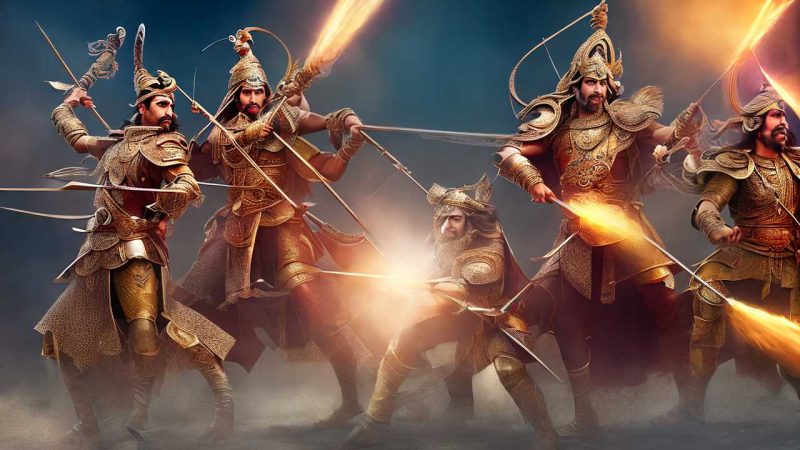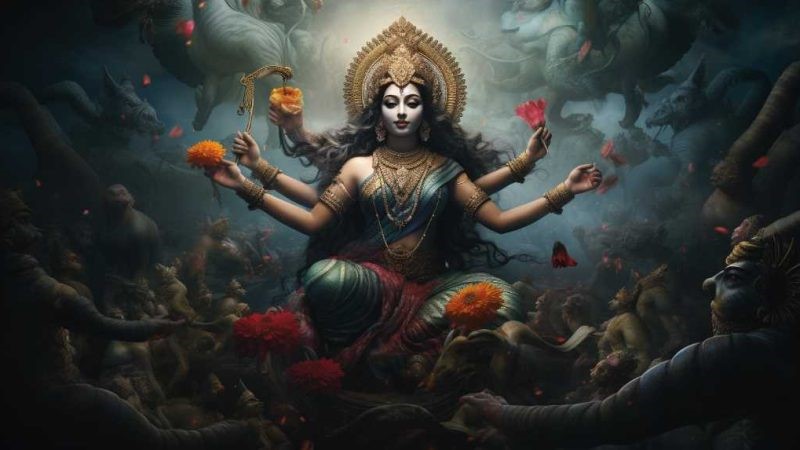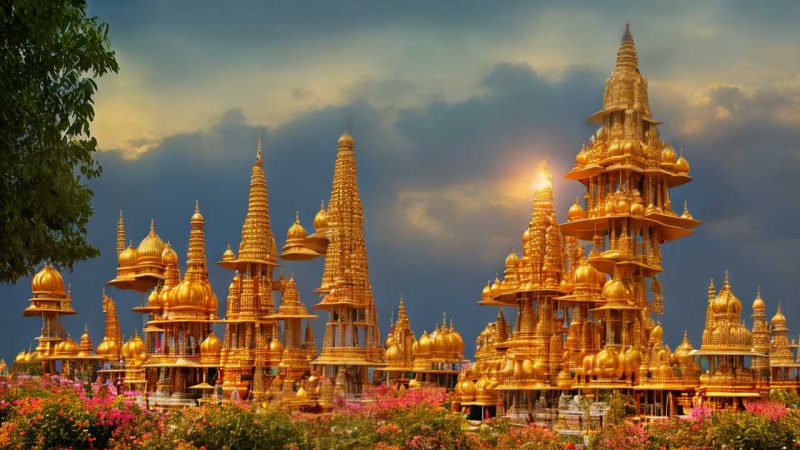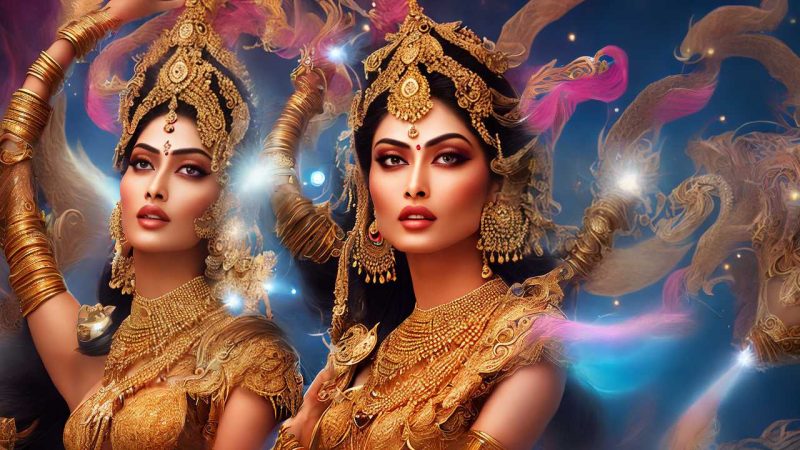The Holy Bovine Cows in Hindu Deity Worship
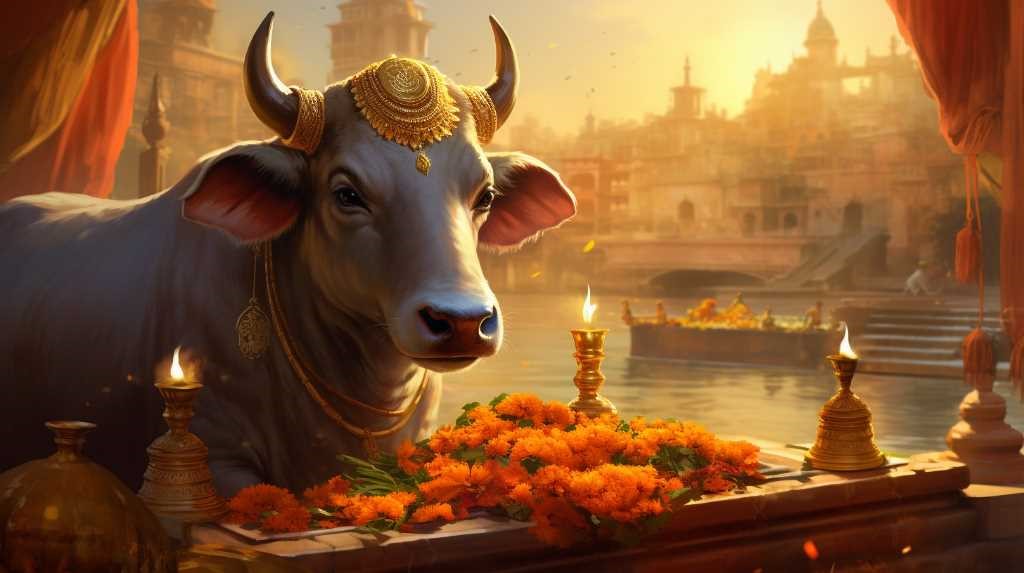
In Hinduism, people see the cow as much more than just an animal that’s useful for farming. It’s a special creature that represents life and the earth. Hindus think of cows as symbols of kindness, like a mother’s love, and as a source of plenty. These ideas come from old religious writings and are a big part of how Hindus live every day. They shape how people in Hindu communities think and behave.
Cows are linked to many Hindu gods. For example, Lord Krishna is often shown in art as being with cows, which shows how much he loves them. There is also the heavenly cow named Kamadhenu, which is said to grant wishes. This shows how important cows are in Hindu religion. They are not just used in ceremonies; they mean something deeper about what is holy and right.
However, today, there are some tough questions about how we treat animals and how that fits with old traditions and the need to make a living. We need to think carefully about how sacred cows fit into our modern lives.
When talking about cows in Hinduism, it’s helpful to give examples to show their importance. For instance, during the festival of Gopashtami, Hindus honor cows and even decorate them, showing their respect. Also, products like cow dung cakes are used in rituals and are recommended for being eco-friendly compared to other fuels.
In short, cows in Hinduism are not just animals; they are a key part of the religion. They show up in stories about gods and are treated with great care. But we must also think about how we can protect these animals while keeping up with the times.
Significance of Cows in Hinduism
In Hindu culture, cows are very important. They are treated with a lot of respect because they’re seen as kind and they give us things we need to live, like milk. These gifts from cows are not just used in everyday life but also in religious ceremonies, which shows how much Hindus value cows. For example, the milk from cows is used in rituals to make them pure and special.
Cows are also seen as a sign of non-violence and wealth. They’re like mothers to Hindus because they provide so much. This respect for cows can be seen in how people act every day; they take care of cows and even worship them.
In Hindu stories and teachings, cows are often mentioned. One famous god, Lord Krishna, is often shown as a cowherd, which shows how close cows are to the gods in Hindu beliefs. This makes cows not just important in the real world but also in the religious life of Hindus.
Cows and Hindu Deities
In Hinduism, cows are very important and are treated with a lot of respect. They are not just seen as valuable animals but also as holy beings that stand for cleanliness and non-harm, which are important ideas in Hindu teachings. Cows are closely connected to Hindu gods and goddesses. For example, Lord Krishna is often shown with cows, which shows that he looks after all living things with kindness and care. Also, there is a goddess named Kamadhenu who is like the queen of cows. She represents plenty and the ability to produce life, and her image helps people understand that cows are sacred in Hinduism.
Now, let’s talk about why this matters. In Hindu worship, cows are not just animals; they are a key part of religious practices. Seeing Krishna with cows tells us that he is a protector and that he values all life. Kamadhenu’s role as a mother figure shows that Hindus see cows as givers of life and providers of essential resources, which is why they are honored.
When we write about this, it should flow nicely and make sense. So, we can say that because of these beliefs, cows are seen everywhere in Hindu stories, temples, and rituals. They are a living symbol of the religion’s values.
To give you an example, during festivals like Gopashtami, people in India actually decorate and worship cows. This shows just how much cows are part of Hindu culture and worship.
In a friendly conversation, someone might say, "In Hinduism, cows are not just animals; they’re part of the family and treated with as much love and respect as a deity." This way of speaking includes rich details and helps anyone understand the deep connection between Hinduism and cows.
Rituals Involving Holy Cows
In Hindu traditions, the cow is very important and shows up a lot in different religious events. People think cows are sacred, so they treat them with a lot of respect every day and in special ceremonies. For example, during Gopashtami, a festival, people decorate cows and show them respect as a way to remember the simple life of Lord Krishna, who is loved by many. Another ceremony, Govardhan Puja, includes a parade with cows leading the way. This shows that people believe cows are holy and can bring good luck and blessings.
Also, a special mix called ‘Panchagavya’ is made from five things that come from cows: milk, yogurt, ghee (a type of clarified butter), urine, and dung. This mix is used to clean and purify during religious events because people believe it has special powers to make things pure. All of these customs point out how important cows are in the Hindu faith and how they are a big part of religious events and daily life.
When talking about these rituals, it’s like telling a story that helps us understand why cows are so respected in Hinduism. It’s not just about what people do; it’s about the deep meaning behind those actions. The cow isn’t just an animal in this context; it’s a symbol of all that is pure and good, and by honoring it, people feel connected to their religion and history.
Protection and Care of Sacred Cows
In Hinduism, cows are considered very important and are a significant part of religious practices. People in the community take great care of them, showcasing their deep beliefs and commitment to doing what is right. To ensure the safety and health of cows, various measures are taken. For instance, shelters known as ‘Gaushalas’ are built to provide them with a place to live. Additionally, efforts are made to ensure that they receive proper medical care. Furthermore, there are endeavors to fight for laws that protect cows from harm or being killed. Many non-governmental organizations and religious groups contribute to the welfare of cows as a form of service to others, known as ‘seva.’ This deep reverence for cows not only impacts religious practices but also has an influence on politics. It leads to the creation of new laws that safeguard the well-being of these animals, combining religious reverence with contemporary ideas about treating animals with kindness and compassion.
Modern Perspectives on Cow Veneration
In today’s Hindu culture, people still honor cows deeply. This respect comes from the cow’s symbol of peace and the ability to give life, which is important in Hindu beliefs. But now, we have to think about how these old ideas fit with modern farms and keeping the environment safe. Experts look at how old religious ways are changing or staying the same in today’s farming and business world.
There’s also a lot of talk about how cows are treated in the milk and farm industries and if this fits with Hindu values. People who care about the environment and religious experts are looking at how protecting cows affects nature. They’re thinking about the gases that cows produce and how that relates to the important cultural practice of looking after these animals.
To make things clearer, let’s consider a specific example. In traditional settings, cows would graze freely and contribute to the agricultural cycle. This was sustainable and aligned with Hindu teachings. But with large-scale dairy farms, cows might not be treated well, and their large numbers can lead to more greenhouse gas emissions. This clashes with the Hindu principle of treating all living beings with kindness and maintaining nature’s balance.
Conclusion
In Hinduism, people hold cows in high regard because they are linked to various gods and are involved in many religious ceremonies. This respect for cows shows a deep commitment to valuing life and avoiding harm to others. Laws and traditions both work to make sure cows are protected and cared for, showing how important they are in the religion.
Even as times change, the way Hindus honor cows is a clear sign of how old traditions still shape modern beliefs and actions in Hinduism.
It’s like how family traditions get passed down through generations; they shape how people think and act today. For example, just as someone might have a special family recipe, Hindus have special ways of showing respect for cows that come from their religious teachings.
This respect for cows isn’t just a habit; it’s a meaningful action that reflects their values and history.

